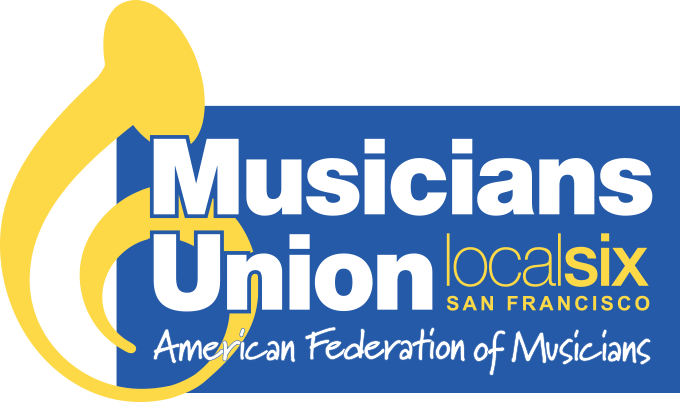Denny Berthiaume: “I’m in it for the long haul.”
by Alex Walsh
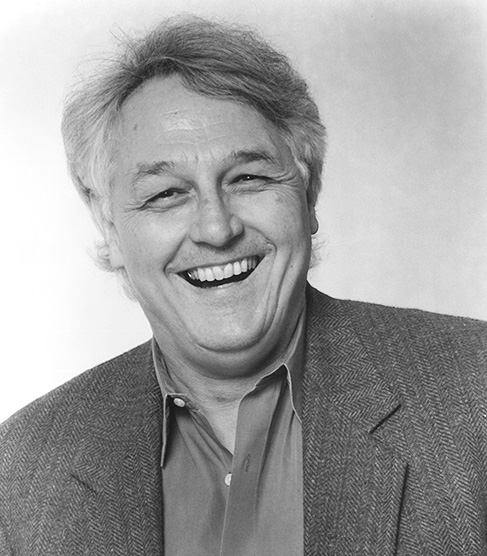
Denny Berthiaume is a pianist, arranger, composer, playwright, author, record label owner, professor, and a Life Member of Local 6. Retired from Foothill College where he taught for 35 years, Denny continues to write, record, and perform as much as he can.
Denny Berthiaume was born in Tacoma Park, MD, in 1942. He spent his formative years in Chicago where his father was a musician and his mother a housewife. As a baby, Denny remembers his dad, a trombonist who switched to chromatic harmonica when he lost his teeth, rehearsing with seven guys in the kitchen. “I’d be in my crib banging my head against the wall to Peg of My Heart. Growing up I remember a picture of my dad and Red Skelton working. Years later, one of my thrills was to bring them together at the American Musical Theater in San Jose where I was conducting. A real treat.”
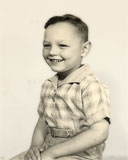 Denny started playing piano when he was five. By this time his family had moved to San Francisco where his father enrolled and graduated from the San Francisco Conservatory of Music. Impressed by his talent, his parents enrolled Denny in the youth program at the San Francisco Conservatory of Music and by the time he was eight Denny decided he was going to be a musician. Unfortunately, his father did not approve. “My dad did not want me to be a professional musician. He wanted me to be a dentist or a lawyer, which was the last thing I wanted to be.”
Denny started playing piano when he was five. By this time his family had moved to San Francisco where his father enrolled and graduated from the San Francisco Conservatory of Music. Impressed by his talent, his parents enrolled Denny in the youth program at the San Francisco Conservatory of Music and by the time he was eight Denny decided he was going to be a musician. Unfortunately, his father did not approve. “My dad did not want me to be a professional musician. He wanted me to be a dentist or a lawyer, which was the last thing I wanted to be.”
The family moved many times during Denny’s first 12 years of school—to Battle Mountain, NV, Sunnyvale, and King City, CA.“Having grown up in an urban environment I always thought, ‘What am I doing in these small goddam cowboy towns?’” Denny continued his piano studies, playing for the school choir, and learning the Great American Songbook. He loved his music but did not do well in school. “I was one of those disruptive students always being sent to the principal’s office.”
Denny graduated high school in 1959. By this time the family had moved to Saratoga where Denny lived at home and went to San Jose State. But he was not interested in school. Rebelling against his father, he got a gig in a local piano bar and ended up flunking out of college after one semester. “I was seventeen and I had a gig five nights a week playing The Tonic Room in downtown San Jose, a piano bar behind a Me & Eddie’s Pizzeria. I was in heaven.”
Knowing he had to move out of his parents’ house, he went with a friend to the local armed forces recruitment center. “A friend in college gave me the idea. The Marines sounded very attractive. Get out of the house, get into the Marine Corps band. By January of 1960 I was on my way to San Diego.”
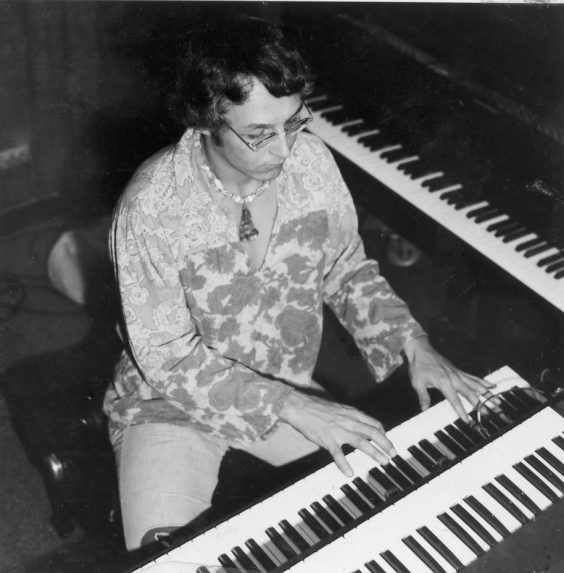
Denny at age 34, performing with Solar Plexus.
After nine months in basic training, Denny auditioned for the band. “There were only about five piano players in the Marine Corps, so it was like gold when they found somebody.” Denny says for the first two years they kept him on high alert, ready to ship out. “They always had me packing. They’d say, ’You’re going to Japan, you’re going to Vietnam, you’re going to Berlin.’ Then they’d say, ‘No, we’ve got to keep you here because the President of Ecuador is coming and we want you to play a reception. It was stressful, and at the same time exactly what I wanted. I was on my own and around music 24/7. When I wasn’t working with the Marine Corps band I was playing in the officer’s club. I played for President Kennedy and President Johnson.”
Denny spent four years in the Marines. By his third year he had grown tired of partying constantly and started thinking about what to do next. His life on base had become stable enough to where he could work during the day and take night classes at the local community college. “I decided it wasn’t a good idea to wake up in my own vomit, or a drug induced stupor in a Mexican border town while on a weekend pass from San Diego. Since I figured it was either death in a garbage can or something better, I decided to go back to school. I took three classes at night and met my future wife.”
The Berthiaume’s were soon married. After the Marines they stayed in San Diego while Denny went on to finish his BA in English. They had their first child in 1964, and their second in 1967. Denny continued to play gigs and decided to go to grad school for English Literature. He was just about to start his thesis when he got an offer to go on the road with a show. “It was similar to the Smothers Brothers. That whole era with Laugh In and the Smother’s Brothers and Second City, we were doing that on the road.”
Denny toured for a year, but it was difficult. He separated from his wife, but they soon reconciled and she and the kids joined him on the road for six months. “The show was getting great write-ups in Variety and Cash Box and Billboard. Had I stayed things could only have looked better. But road life is really difficult and would have meant my wife and kids being by themselves. With school approaching they couldn’t be on the road with me. I think it was the right decision to go on the road, and the right one to come off. Had I never gone on the road I would have been, ‘Oh jeez, if I would’ve.’ And If I hadn’t come off the road I probably would have been dead.”
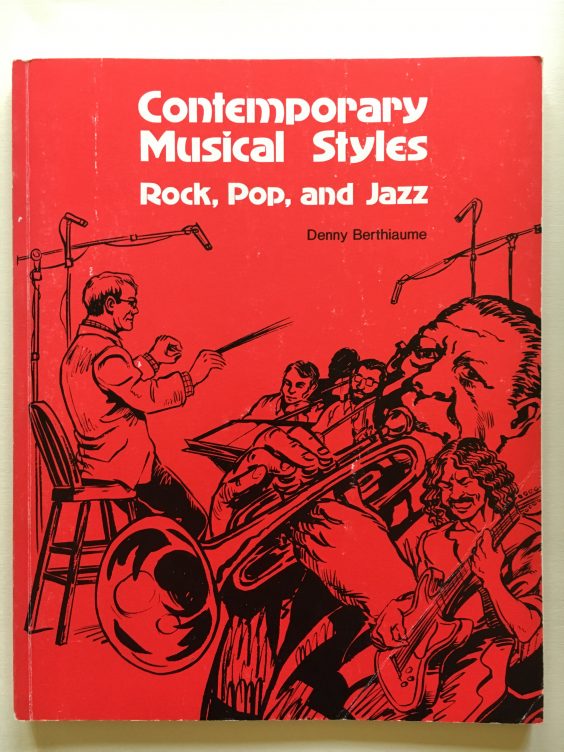
Denny had a book published based on his Jazz history class which included cassettes for each lesson. Unique for its time, the book was advertised in print, radio, and television, and sold well.
Denny returned to San Diego and finished his thesis: “The Influence of French Surrealism on Nathaniel West.” He also worked clubs, including a stint as musical director at Sneaky’s where he played with celebrities including Mighty Joe Williams and Jerry Van Dyke. After graduation he began teaching English at Mesa College, and then interviewed for Foothill College in Los Altos. “I got the job and moved the family up here. I started teaching at Foothill in 1970 and immediately started playing. I kept my membership in Local 325 and joined 153. I remember I was playing a banquet when I ran into my old high school music teacher. He asked ‘What the hell are you doing here?’ I said, ‘I just got a job at Foothill College teaching English.’ He said, ‘Jesus Christ, I thought you were going to be a hoodlum.’”
Denny established himself on the local scene and was eventually asked by Larry Vuckovich to take over his regular trio gig in Cupertino when Larry decided to leave town.
As a new teacher, Denny taught freshman English, Composition and Literature. As the years went by he taught more advanced classes, and eventually helped build up the jazz program. “By year eight I was teaching Shakespeare, survey of American Lit. and British Lit. I told the administration, ‘You don’t have many jazz classes, no jazz history class and you barely have a jazz improvisation class.’ They said, ’Well, why don’t you teach them?’ I said I didn’t have any music degrees. They said, ‘Don’t worry about it, we’ll get you the credentials.’ So they wrote to Sacramento and got me a credential and I ended up teaching music. I never wanted to teach music, I just wanted to play. It turned out I was good at it.”
SOLAR PLEXUS
While teaching in an experimental interdisciplinary program at Foothill college in 1972, Denny was introduced to Randy Masters, a music teacher at UCSC. They formed Solar Plexus, a jazz fusion group which released two albums on Inner City Records. “Randy was into Latin American and South American music and we hit it off big time. All of a sudden I’m learning how to play in 5/4 and 7/4. I also learned Bossa Novas and Sambas. It just opened many doors.”
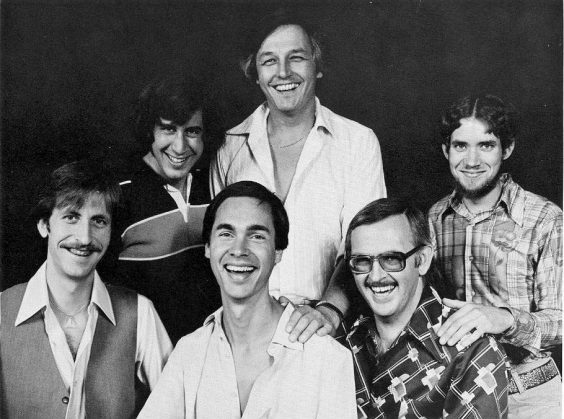
Solar Plexus, 1977. Standing from left: the late Russ Tincher (drums), Denny Berthiaume, Jon Ward (bass). Seated from left: Eric Golub (elec violin), Randy Masters (trumpet), Terry Summa (woodwinds). Denny: “Solar Plexus hit at just the right time. Weather Report, Yes, Chicago, Blood Sweat & Tears, the jazz rock fusion thing was popular.”
In 1974 Denny moved his family to Hawaii for a year on a teacher exchange program at Leeward College in Pearl City, where Pearl Harbor is located. He worked in clubs in Honolulu and took electronic music classes. Randy visited him a few times and they worked on music together for the band. When Denny returned to the Bay Area Solar Plexus went into the studio and self-produced its first record. “It was a real awakening. One of those things where you realize there’s an alternate universe out there. I started writing a lot more music because I had a six-piece group to write for, 3 horns and 3 rhythm. We were out playing and touring. We opened for Ron Carter. Our biggest gigs were the big auditoriums on Stanford campus and the Great American Music Hall in San Francisco. There was so much work the rhythm section would go out and play gigs in the Mission or North Beach.”
Solar Plexus broke up in 1981. They had just submitted their third album to Inner City Records but the label rejected it. “It was traumatic but I immediately went into playing club work. I just picked up where I left off before Plexus.” Denny worked at Garden City in Santa Clara until 1985, and then the Plumed Horse in Saratoga. During the 80s and 90s he played many special concerts as a multi-keyboardist and conductor, including the Monterey Jazz Festival with the DeAnza Jazz Singers, and concerts at the Flint Center and San Jose Center for the Performing Arts with Bob Hope, Red Skelton, Phyllis Diller, Bob Newhart, and many others.
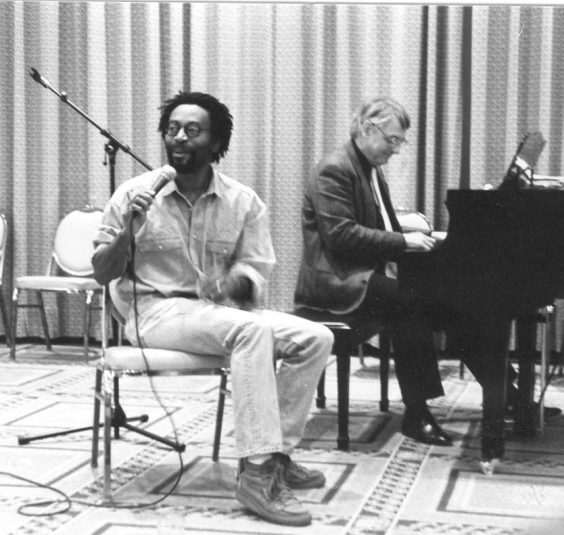
With Bobby McFerrin at the Renaissance Hotel in San Francisco for a vocal teacher’s conference.
In the early 90s Denny started working at the Fairmont Hotel in San Jose in their flagship room Les Saisons. “I was playing one night and a dignified gentleman came up and said, ‘My wife and I really enjoyed your playing. Can my wife sing a few tunes?’ I said, ‘Well, management doesn’t really allow that, but okay.’ His wife came up and it turned out to be Rita Moreno. She sang a few tunes. A lot of that kind of thing happened during my career.”
In 1993, Denny started writing plays, and had a one act produced in Chicago that was picked up by a publisher. In 1997 he took a break from club work to write an opera. “I met a guy who had written a book about Van Helsing, the guy who hunts down Dracula. I liked it so he asked me to write some incidental music for it and we ended up writing an opera. We went into the studio to record it and we’re still sending it out, trying to get it produced.”
FLYING RABBIT
During this time he moved to San Francisco and immersed himself in the music scene, gigging as much as he could. In 2004, Denny retired from teaching and began developing duos and trios for gigs and recording projects. With his 2nd ex-wife, vocalist Susan Goodman, he started a record label, Flying Rabbit, which has since released more than a dozen CDs of his various projects.
“In 2004 I found myself playing duos with Chuck Bennett (bass), subbing for Mike Greensill and Dana Atherton, so I said, ‘Chuck, let’s make a trio.’ My friend Curt Moore (drums) joined us. I also put together a trio with Mickey Phillips (bass) from Solar Plexus who knew Rob Gibson (drums). “We worked anything and everything, from retirement homes to Planned Parenthood clinics.” In 2010, Chuck Bennett and Denny started a 3rd trio, adding drummer Bill Belasco. Their debut CD—THREE MUSICIANS—recently appeared on Summit Records.
During the 80s and 90s, Denny was the on-call pianist for Bud Dimock’s recording studio in Campbell, and later traded his piano chops for studio time at Open Path Studios in San Jose. With the formation of his new groups and record label, Denny started recording as much as he could. “Some of the projects have been in the planning stages for two years. I prefer to play them in public and see what kind of reaction we get and see where we need to tighten things up so we’re not wasting time in the studio. When people ask, ‘Why are you doing CDs? People just download stuff from the cloud or itunes.’ I say there’s still a generation of people who enjoy music by Irving Berlin and George Gershwin and Jerome Kern, and they’re still very much alive and they still buy CDs. When that generation has died, and that would include my generation, I’m 74, then I’ll start thinking about it. We sell them on Amazon, CDBaby, and at gigs and always get a response.”
A few years back Denny was working on a project setting music to Pablo Neruda poems. When he told his landlady, Pat Frank, an elementary school teacher from Chile who loves the Arts, about it she offered to be the translator with the Neruda estate. “There are people who really appreciate musicians, actors and painters, and then there are those who think we’re in 16th Century England and all the artists should be hung—the pimps, the prostitutes and the pianists.”
At a recent gig with Chuck Bennet at the Los Altos History museum they sold twelve CDs. On one of his recent solo gigs, a customer liked his playing so much he offered to pick up the tab for his next solo CD which will be released soon. “It’s like I’m living in the Renaissance and I’ve just found a patron.”
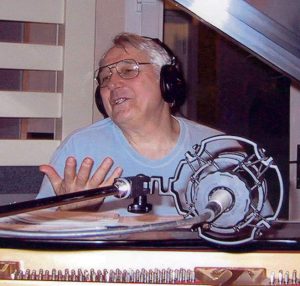
Denny recording at Open Path Studios.
Today Denny has a full calendar. He plays regularly by himself, with his own groups and with other bands including the College of San Mateo big band. His days are filled with writing and arranging new music, and rehearsing with singers for his regular Tuesday night trio gig at Angelica’s in Redwood City. “I like working with singers. I’ve been doing it since high school. With this trio series, I rehearse with every singer. My days are filled with chasing after them. ‘Please send me your bio, picture, list of tunes, and your lead sheets so I can put it up on Angelica’s website.’ I’ve worked with about 115 singers and maybe 10 have said they don’t want to rehearse, or they don’t want to send a list of tunes. They’ll say, ‘This is jazz, we just get up there and play.’ Well, no. That’s not really the way it works. That’s an urban myth. The fact is that the more prepared you are, the more you can be free on the stand.”
Denny says you never know what’s going to happen. He was recently called out of the blue to play a benefit with k.d. lang at a winery in Napa. “We did two sets together. It was great. My daughter’s godfather used to be k.d.’s PR person at Warner Bros., so we had a connection. In 2014 I got a call from a contractor to work with Joan Rivers two weeks before she passed away. We played the Fox Theater in Redwood City and the Mountain Winery in Saratoga. I’ve had a whole bunch of those kinds of experiences.”
Denny’s advice for young musicians is to go out and play. “A lot of the things I’ve done I wasn’t ready for. Musicians that say they’re not ready to play publicly, I say do it anyway. If you want to learn how to improvise, write your own music. You’re going to discover things in the process that you never knew before, or that you never knew you knew. And play with as many people as possible.”
For the latest info visit: www.dennyberthiaume.com
